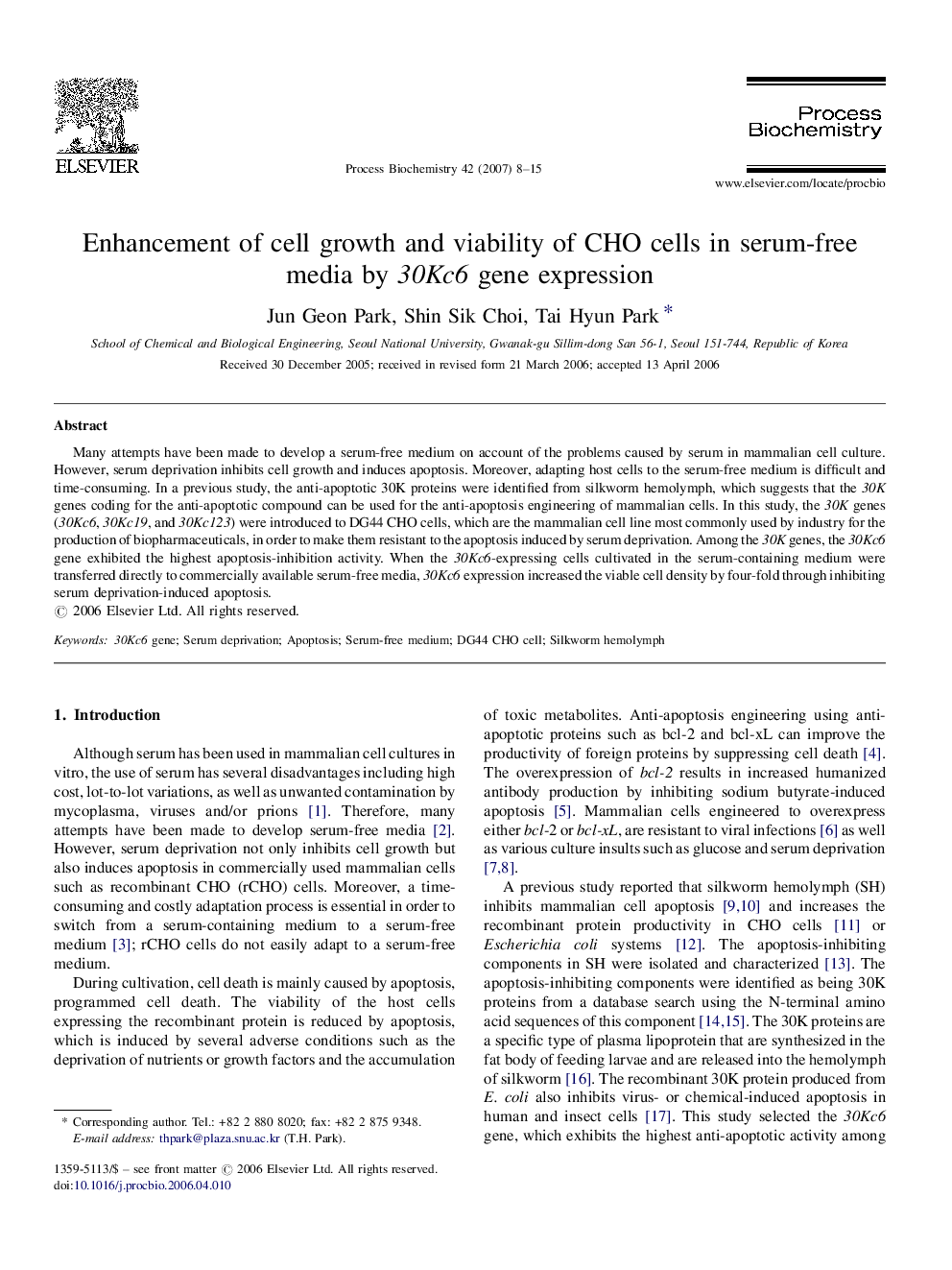| Article ID | Journal | Published Year | Pages | File Type |
|---|---|---|---|---|
| 36308 | Process Biochemistry | 2007 | 8 Pages |
Many attempts have been made to develop a serum-free medium on account of the problems caused by serum in mammalian cell culture. However, serum deprivation inhibits cell growth and induces apoptosis. Moreover, adapting host cells to the serum-free medium is difficult and time-consuming. In a previous study, the anti-apoptotic 30K proteins were identified from silkworm hemolymph, which suggests that the 30K genes coding for the anti-apoptotic compound can be used for the anti-apoptosis engineering of mammalian cells. In this study, the 30K genes (30Kc6, 30Kc19, and 30Kc123) were introduced to DG44 CHO cells, which are the mammalian cell line most commonly used by industry for the production of biopharmaceuticals, in order to make them resistant to the apoptosis induced by serum deprivation. Among the 30K genes, the 30Kc6 gene exhibited the highest apoptosis-inhibition activity. When the 30Kc6-expressing cells cultivated in the serum-containing medium were transferred directly to commercially available serum-free media, 30Kc6 expression increased the viable cell density by four-fold through inhibiting serum deprivation-induced apoptosis.
